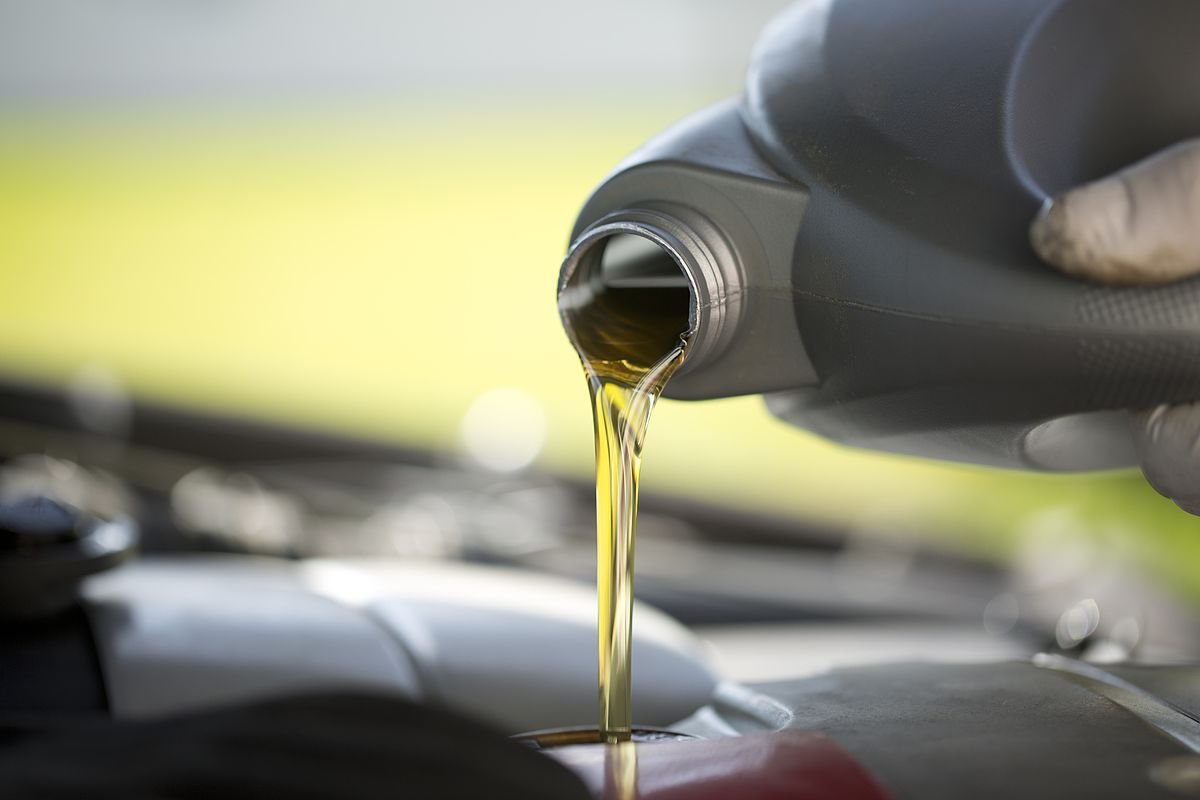Learn about engine oil, its types, and how to choose and change it for optimal engine performance. Discover maintenance tips and more in our comprehensive guide.
When you drive a car, engine oil is very important. It helps the engine run smoothly and lasts longer. You need to know how to pick the right engine oil and when to change it. In this article, we will cover types of engine oil, how to choose the best one for your car, and how to change it. We will also talk about how engine oil affects your car’s performance and what to do if you have problems. By the end, you will understand everything about engine oil and how to keep your engine in great shape.
What is Engine Oil?
Engine oil, or motor oil, is a lubricant used in internal combustion engines. Its primary purpose is to reduce friction between engine components, ensuring smooth operation. There are several types of engine oil, each suited for different needs:

- Synthetic Oil: Offers superior performance in extreme temperatures and enhances engine protection.
- Conventional Oil: Generally used in older vehicles and is less expensive.
- High-Mileage Oil: Formulated for engines with over 75,000 miles, helping to reduce oil consumption and leaks.
- Diesel Oil: Specifically designed for diesel engines, providing better protection against the unique challenges they face.
How Engine Oil Works
Engine oil performs several vital functions:
- Lubrication: It forms a thin film between moving parts, reducing friction and wear.
- Cooling: By circulating through the engine, oil helps to dissipate heat.
- Cleaning: Oil carries away dirt, debris, and contaminants, which are trapped in the oil filter.
Choosing the Right Engine Oil
Selecting the right engine oil is essential for your vehicle’s health. Here’s how to make an informed choice:
Types of Engine Oil
Choosing between synthetic and conventional oil depends on various factors including your vehicle’s age and driving conditions. Synthetic oil often provides better performance and protection but at a higher cost compared to conventional oil.

Understanding Viscosity
Viscosity refers to the thickness of the oil and its ability to flow at different temperatures. It is rated by the Society of Automotive Engineers (SAE). For instance, 5W-30 means the oil performs well at low temperatures (5W) and remains stable at higher temperatures (30).
Oil Specifications and Standards
Engine oils are classified based on performance standards set by organizations like the American Petroleum Institute (API). For example, API SN is a common rating indicating high performance in modern engines.
Engine Oil Change and Maintenance
Regular oil changes are critical to maintaining engine health. Here’s what you need to know:
When to Change Engine Oil
Oil change intervals vary based on your vehicle’s make and model. Generally, it’s recommended to change the oil every 3,000 to 5,000 miles. However, always consult your owner’s manual for specific recommendations. Common signs that you need an oil change include a ticking noise from the engine and dark, dirty oil on the dipstick.

How to Change Engine Oil
Changing engine oil involves several steps:
- Prepare the Vehicle: Ensure the engine is cool and the car is on a level surface.
- Drain the Old Oil: Remove the oil drain plug and let the old oil flow into a container.
- Replace the Oil Filter: Remove the old filter and install a new one.
- Add New Oil: Refill the engine with fresh oil, using a funnel to avoid spills.
- Check the Oil Level: Ensure the oil level is within the recommended range.
Oil Filters and Their Role
The oil filter removes contaminants from the oil. It is essential to choose a filter compatible with your vehicle and change it along with the oil to ensure optimal performance.
Engine Oil and Engine Performance
The quality and type of oil you use can significantly impact your engine’s performance and longevity:
Impact on Engine Longevity
High-quality engine oil helps minimize wear and tear on engine components. Synthetic oils are particularly effective at reducing engine wear and extending its lifespan.
Performance in Extreme Conditions
Engine oil must perform well in both high and low temperatures. Synthetic oils excel in extreme conditions, maintaining their viscosity and providing reliable protection.
Benefits of Synthetic vs. Conventional Oil
Synthetic oil offers several advantages over conventional oil, including better high-temperature stability and improved performance in cold weather. It is often recommended for newer engines or those subjected to harsh driving conditions.

Troubleshooting Engine Oil Issues
Being aware of common engine oil problems can help you address issues before they become serious:
Common Problems
- Oil Leaks: Check for puddles of oil under your vehicle.
- Oil Burn Off: Burning oil may indicate worn engine parts or seals.
- Contaminated Oil: Oil may become dirty or gritty if not changed regularly.
How to Identify Oil Issues
Signs of engine oil problems include unusual engine noises, oil warnings on the dashboard, and decreased performance. Regular inspections and maintenance can help prevent these issues.
Preventive Measures
Routine maintenance, such as regular oil changes and checking oil levels, helps prevent many common problems. Choosing the right type of oil for your vehicle’s needs is also crucial.
Environmental and Economic Considerations
Environmental Impact
Used engine oil should be recycled properly to prevent environmental harm. Many auto shops offer recycling services for used oil and filters.
Cost Considerations
The cost of engine oil can vary widely. Synthetic oils are generally more expensive but can offer better performance and longer intervals between changes. Weigh the cost against the benefits to make an informed choice.

In summary, choosing the right engine oil and changing it regularly are crucial for your car’s performance and longevity. We’ve covered the types of oil, how to select the best one, and the importance of timely oil changes. For more tips and advice, leave a comment, share this article, or explore other content on our site. Your feedback and engagement help us provide better information and keep your car running smoothly.
FAQs about Engine Oil
How often should you change your engine oil?
Changing your engine oil regularly is essential for maintaining your vehicle’s performance. Most experts recommend changing the oil every 3,000 to 5,000 miles or every 3 to 6 months, depending on your driving habits and the type of oil used. Always check your vehicle’s owner’s manual for specific recommendations as different engines have different needs.
What type of engine oil is best for your car?
The best engine oil for your car depends on several factors including the vehicle’s make and model, and driving conditions. Synthetic oil is often preferred for modern engines due to its superior performance and longevity. However, conventional oil may be suitable for older vehicles. Always use the oil type recommended by your car manufacturer, which is specified in your owner’s manual.
Can you mix different types of engine oil?
While it is technically possible to mix different types of engine oil, it is not advisable. Mixing synthetic and conventional oils can dilute the performance benefits of each type. For optimal engine performance and protection, it’s best to use the same type of oil as what’s already in the engine or follow the manufacturer’s recommendations for a specific type of oil.

What are the signs that you need to change your engine oil?
Several signs can indicate that it’s time for an oil change. Look out for dark, dirty oil, engine noise, or oil warning lights on your dashboard. Also, if your vehicle is consuming oil faster than usual or you notice excessive exhaust smoke, these may be signs that the oil needs changing.
How does engine oil affect your vehicle’s performance?
Engine oil is critical for ensuring smooth operation and longevity of your vehicle’s engine. It reduces friction between moving parts, which helps prevent wear and tear. Quality oil also helps cool the engine and clean contaminants that could cause damage. Using the right oil enhances overall engine performance and efficiency.